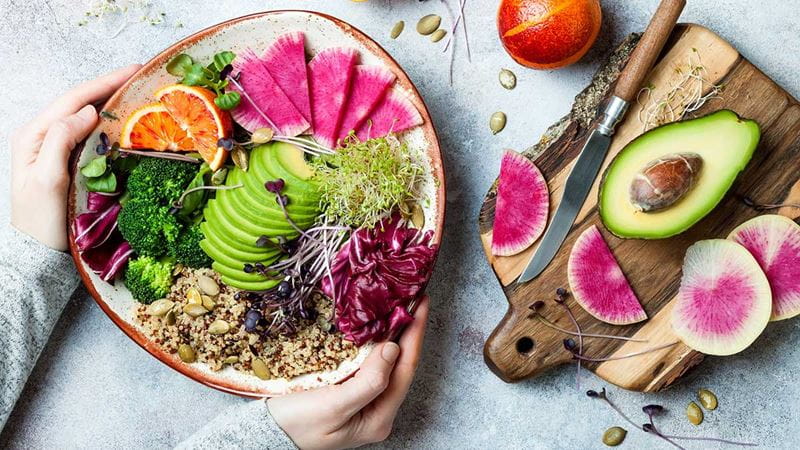Blog article
Making gratitude a habit – it may lead to better sleep and less stress

When will the weekend arrive? When will you secure that promotion? When will you meet the partner of your dreams?
So many of us are so focused on what we need to achieve to be happy that we forget to be appreciative of what we have right now. And given the myriad benefits of this appreciation, it’s worth taking a few minutes out of your day to do just that.
In this article
- What is gratitude
- The psychology of gratitude
- Ways to practise gratitude
- Free gratitude resources
- Making gratitude a habit
- How can HBF help?
What is gratitude?
According to the American Psychological Association, gratitude is “a sense of happiness and thankfulness in response to a fortunate happenstance or tangible gift”.
Gratitude can be described as a temporary emotional state, such as the feeling we get in response to something good happening, or a long-term personality trait (as in, someone who embodies the attitude of gratitude).1
The psychology of gratitude
While it might seem like something of a new-age concept, the benefits of gratitude do have some backing in the realm of science. These include the following:
- It may reduce stress, anxiety, and depression.2
- It may make you happier and improve your life satisfaction.3
- It could improve your sleep.4
- It may improve your relationships5 and reduce loneliness.6
Ways to practice gratitude
- Journaling. This involves writing down a few things you are grateful for each day. It is fast, easy, effective, and can be done by hand or on your phone.
- Make a gratitude jar. At least three times a day, write down things you are grateful for and put them in the jar. You can revisit these notes when you need a mood boost.
- Gratitude meditations. There are a lot of these available online. They are great for people who don’t want to write things down. This can be self-directed, or you could find a guided meditation that works for you.
- Acknowledging someone. Gratitude is a great way to share positive feelings! Think about someone you appreciate, then call them, write them a letter, or send them a message telling them why.
Free gratitude resources
Apps
All apps listed here are available for both iOS and Android and have user ratings above four stars. All are free or have a free-to-use option.
- Gratitude. Features a daily journal, vision board, affirmations, challenges, and reminders.
- Reflectly. Features quotes, mood tracking, AI-driven questions, and journaling.
- 365 Gratitude. Features mood tracking, daily prompts, gamification, inspirational stories, and meditations.
- The Gratitude Garden. Features journaling, social connection, and gamification. Users build a gratitude garden populated with plants and creatures.
Podcasts
- The Gratitude Podcast by Georgian Benta
- Being Well: Why Gratitude Is a Gift to Yourself
- The Science of Happiness Podcast: How to Practice Gratitude When You’re Not Feeling Thankful
- The Good Life Project: Brene Brown on Gratitude, Vulnerability and Courage
- Personality Hacker: The Skill of Gratitude
Making gratitude a habit
The key to maintaining a daily gratitude practice is recognising what you are likely to keep up. Play to your strengths and make it something you’ll enjoy and that doesn’t feel like an arduous obligation. While some might enjoy the ritual of writing or drawing in a beautiful leatherbound gratitude journal, others prefer to simply recognise them mentally.
These strategies can help you make your gratitude a regular habit.
- Making it part of your existing routine and assigning particular trigger events will increase the chance of it sticking.7 For example, you could list five things you’re grateful for in your head every time you brush your teeth.
- Set a daily gratitude alarm on your phone. This could be a simple regular reminder to recognise three things you’re grateful for in that moment.
- If an activity is pleasant and associated with good feelings, it is more likely to stick.8 Consider involving tools, timing, music, or an environment you enjoy when designing your practice.
How can HBF help with your mental health?
While creating a journal or setting a meditation goal is up to you, there are ways we can help you manage your mental health too.
- HBF extras cover can give you and those on your cover benefits towards visits with a psychologist or clinical psychologist, up to your annual limit.
- HBF hospital cover can pay benefits for hospital psychiatric services to treat mental health conditions such as major depression and anxiety.
Learn more about HBF mental health cover and how it could help you.
Mental health support links and phone lines
24 hours, 7 days
- Lifeline: 13 11 14
- Suicide Call Back Service: 1300 659 467
- Beyond Blue: 1300 224 636
- MensLine Australia: 789 978
- Kids Helpline: 1800 551 800
- Headspace: 1800 650 890
1 Positive Psychology - What is Gratitude and Why Is It So Important?
2 Positive Psychology - The Neuroscience of Gratitude and Effects on the Brain
3 Springer Link - The Effect of Expressed Gratitude Interventions on Psychological Wellbeing: A Meta-Analysis of Randomised Controlled Studies | International Journal of Applied Positive Psychology (springer.com)
4 Science Direct - Gratitude influences sleep through the mechanism of pre-sleep cognitions
5 Clinical Psychology Review - Gratitude and well-being: A review and theoretical integration
6 National Library of Medicine - The Relationship Between Gratitude and Loneliness: The Potential Benefits of Gratitude for Promoting Social Bonds
7 Health Direct - Creating healthy habits
8 BMC Psychology - Exploratory study of the impact of perceived reward on habit formation | Full Text (biomedcentral.com)
This article contains general information only and does not take into account the health, personal situation or needs of any person. In conjunction with your GP or treating health care professional, please consider whether the information is suitable for you and your personal circumstances.



